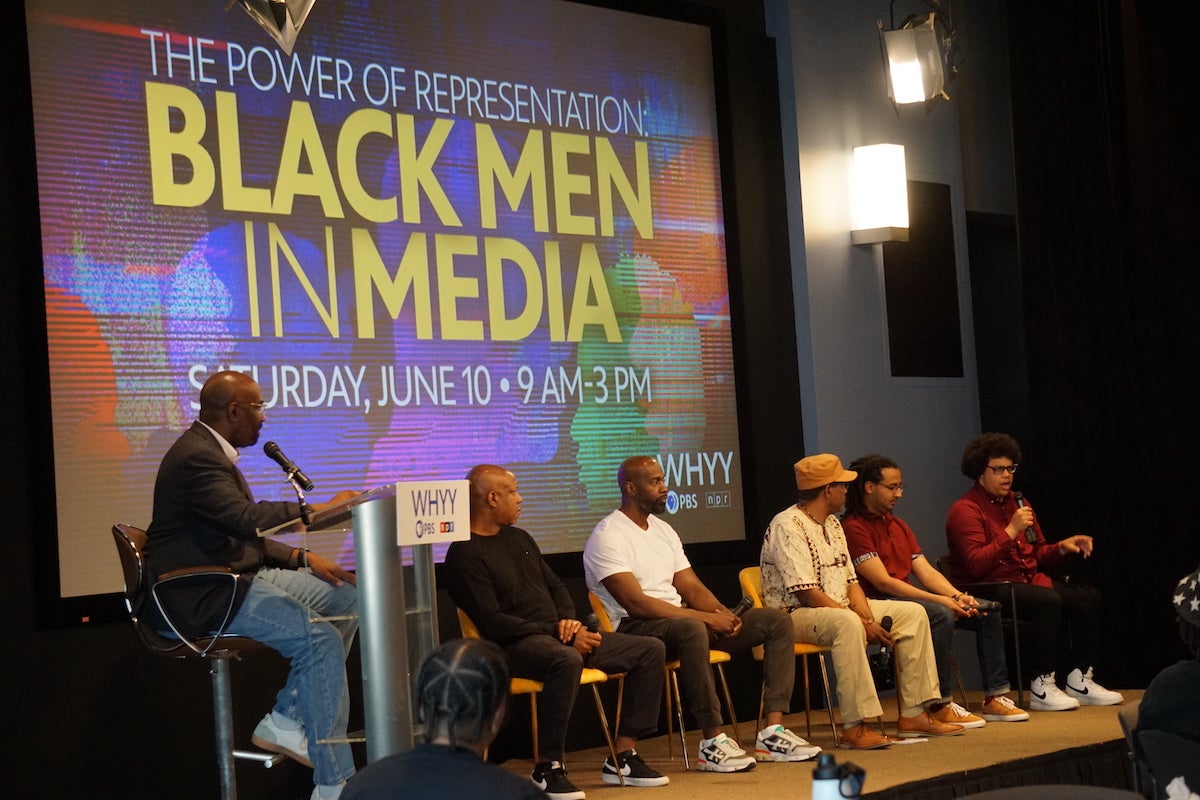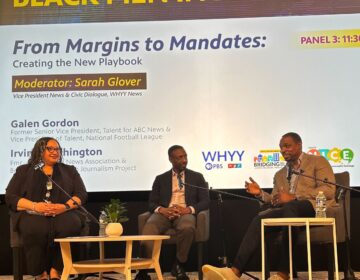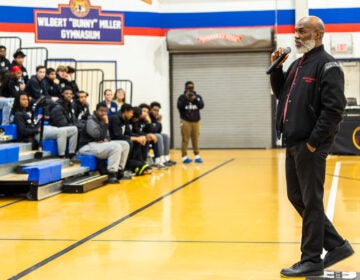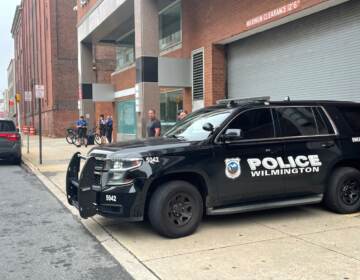WHYY ‘Black Men in Media’ summit tackles stereotypes, diversity in media
At WHYY’s day-long event, experienced Black journalists shared their career insights on shifting media narratives about the Black community.
Listen 1:35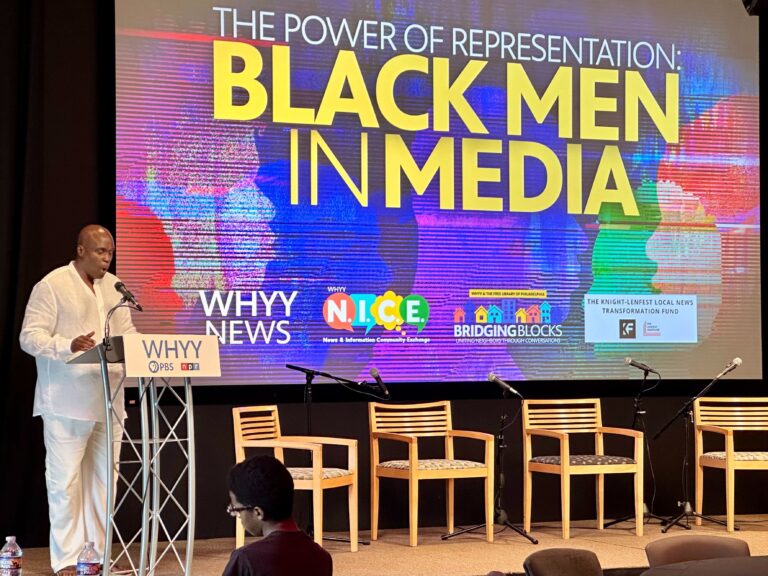
Solomon Jones shares his story and experience as the keynote speaker for WHYYs “Black Men in Media.” (Johnny Perez-Gonzalez/WHYY)
From Philly and the Pa. suburbs to South Jersey and Delaware, what would you like WHYY News to cover? Let us know!
Philadelphia journalist Solomon Jones wants more diversity in newsrooms and within the industry to change the narrative around the Black community.
Speaking at WHYY’s annual “Black Men in Media” event Saturday, the 30-year veteran and host at WURD Radio, Pennsylvania’s only Black-owned radio talk station, said that better representation in the media starts with bringing more Black men and boys into the newsrooms that report on them.
“It’s important to make sure that there is a diversity of voices in media,” he said. “They bring their own education and I think that when you don’t have voices that are representative of the communities that you talked about, that’s when you get stereotypes, that’s when you get negative assumptions. That’s when you get people who don’t know the community trying to determine what the narrative is about that community.”
Jones gave the Keynote at Saturday’s event, which is now in its second year. The event is organized by the News and Information Community Exchange program to foster conversations about stereotypical narratives.
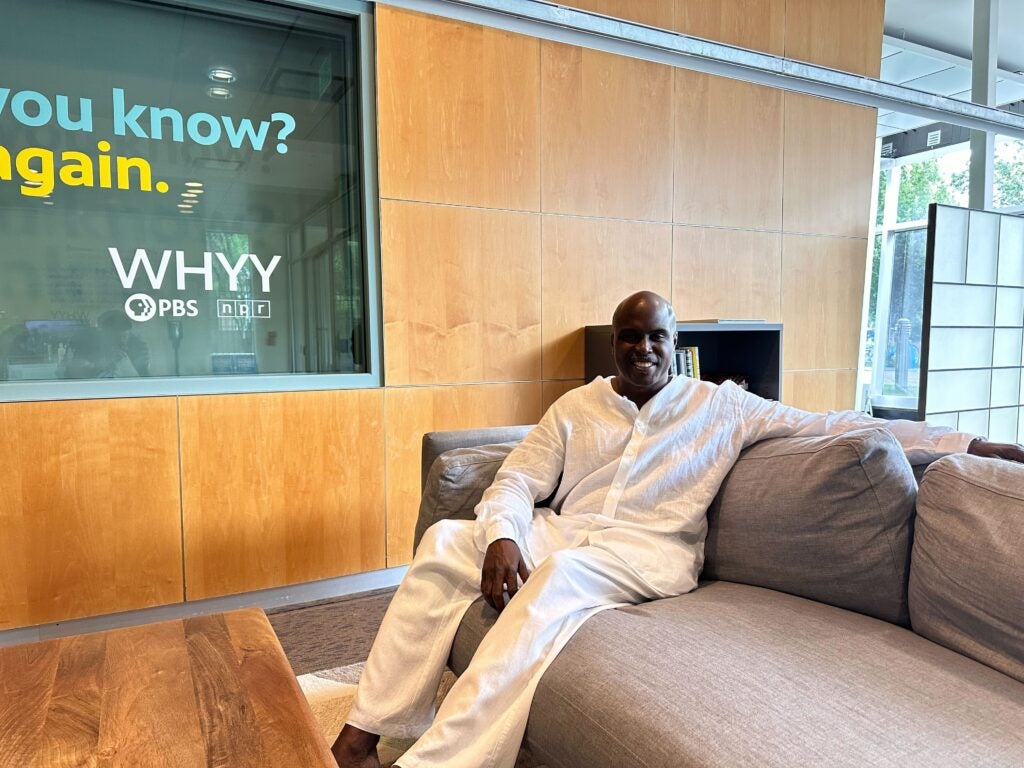
Black men are underrepresented in the media, Jones said. Those who have the platform feel a responsibility to tell the “true” stories of their community.
“I’m responsible for telling the stories of my people. I’m responsible for carrying the history of my people. I’m responsible for giving them my truth about my people because if I don’t, if my people don’t have knowledge, then they perish,” Solomon said.
Eric Marsh, manager of community and engagement for WHYY News, agrees with Jones. He highlighted how misleading media portrayals can misinform the audience and limit personal expression, crucial for holistic self-expression.
“Oftentimes narratives around Black men and boys can be created in harmful ways, both intentionally and unintentionally,” he said. “We want to be able to show people how working in various mediums as a form of self-expression is actually healthy for one’s well-being, you know, your self-identity and I want to say your mental and emotional well-being. This art is a type of therapy in a way.”
Saturday’s event covered a breadth of topics through multiple panel sessions. Speakers led conversations on portrayals and representations of the Black community in films, television, music, and art. Two panels focused on the news and journalism industry and the portrayal of Black men in mainstream media.
Marsh said WHYY decided to curate and host the annual event with three goals in mind.
“The three objectives are one, to highlight Black men and boys who are working in the media and or using the media for self-expression. The second objective is to identify career pathways for Black men and boys into the media,” he noted. “And the third one is to examine the ways that Black men and boys are portrayed in mainstream media and rethink and re-examine how Black men are portrayed and how we portray ourselves in a more healthy, holistic way.”
Marsh said he hopes the event shifts mindsets and debunks stereotypes about Black males.
“I’m hoping that this program helps everyone see Black men and boys in a new light and see them with compassion and admiration,” he said. “And that they, too, are able to then go back and examine some of the harmful ways in which Black men had been portrayed in the media and really think about changing those narratives.”
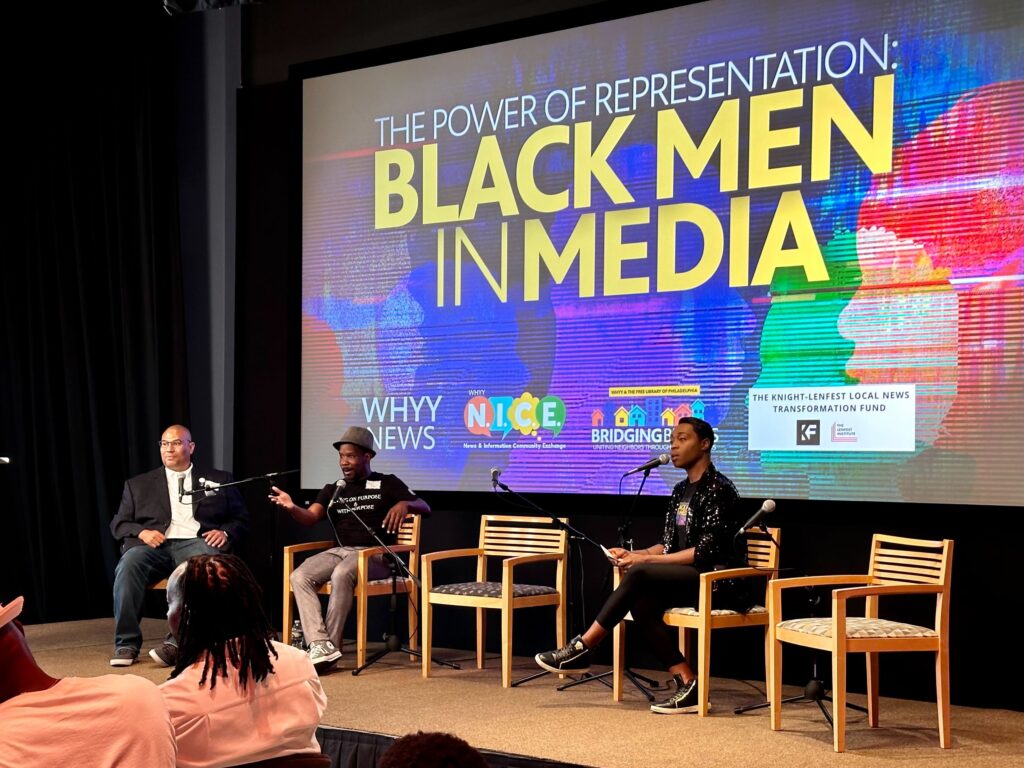
Jones from WURD said flipping the narrative shouldn’t be restricted to researching the community and increasing awareness. He encouraged media professionals to build and nurture meaningful relationships.
“Develop sources within the community; don’t rely on studies about the community done by people outside the community and done in a way that does not serve the community,” Jones said. “Our primary sources have to be people who are living the experience that you’re writing about.”
Jones also had some words of advice for Black men in the media.
“Being a Black man in [the] media is not about my achievements, being a Black man in [the] media is not about your achievements, being a Black man in [the] media is not about you,” he said. “It’s about responsibility…”

Get daily updates from WHYY News!
WHYY is your source for fact-based, in-depth journalism and information. As a nonprofit organization, we rely on financial support from readers like you. Please give today.



